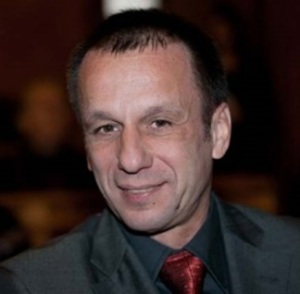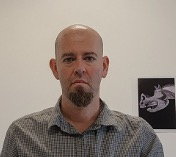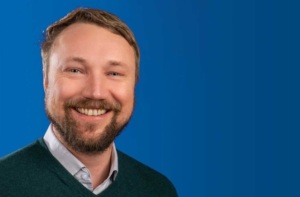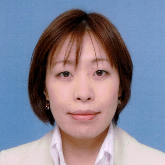Workshops
Monday 9th June 2025
Attendance to euspen‘s 2025 workshops are €25 per workshop.
Workshop 1: Additive Manufacturing and Surface Post-processing
Monday 9th June 2025
Room: Agustin de Bentacourt, Room 2.18
Time: 14:00-17:00
The workshop lead is Assoc. Prof. Dr Josko Valentincic
Title: Additive manufacturing and surface post-processing (HE project SEAMAC, GA 101079481)
The tutorial focuses on the essential elements of metal additive manufacturing (AM) and its surface post-processing techniques. It provides attendees with a comprehensive understanding of the metal AM process chain, from powder bed fusion (PBF-LB/M) and direct energy deposition (DED), effect of defects and microstructure on component performance, to cutting-edge surface post-processing methods like plasma-electrolytic polishing (PEP). The course highlights the role of materials in the AM process and delves into how surface quality is optimized through advanced post-processing. Participants will gain insight into the latest research trends driving innovation in metal AM and its post-processing techniques.
Intended audience:
The tutorial is aimed at engineers, researchers, and industry professionals involved in the additive manufacturing and post-processing fields. It is ideal for those looking to deepen their understanding of metal AM processes and surface finishing methods.
Learning outcomes:
- Understanding the basics of metal AM processes
- Knowledge of defects and microstructure of AM parts, and plasma electrolytic polishing as a surface post-processing technique
- Awareness of research trends in metal AM and post-processing

Assoc. Prof. Dr. Joško Valentinčič, University of Ljubljana, Slovenia
Assoc. Prof. Joško Valentinčič, PhD is a Senior Lecturer at Faculty of Mechanical Engineering, University of Ljubljana. His current research interest lies in surface post-processing of additively manufactured parts. He published over 40 original scientific papers, has four patents, and organised over ten international conferences and workshops on Management and Innovative Technologies. He is a research group leader, coordinator of the HE project Strengthening the excellence of additive manufacturing capabilities (SEAMAC), and a member of the executive committee of the International Institution for Micro Manufacturing (USA).

Prof. Dr. Edvard Govekar, University of Ljubljana, Slovenia
Prof. Dr Edvard Govekar is a senior lecturer and head of the research group at the Faculty of Mechanical Engineering at the University of Ljubljana, Slovenia. His current research interests include additive manufacturing (AM) with a focus on DED-LB/M and PBF-LB/M processes and stochastic data analysis with applications for monitoring, diagnosis and optimization of manufacturing processes. He has published over 95 original scientific papers and holds three patents in the field of AM. He is a member of CIRP – The International Academy for Production Engineering.

Prof. Dr. Shmuel Osovski, Technion – Israel Institute of Technology, Israel
Prof. Dr. Shmuel Osovski is an Associate Professor of Mechanical Engineering at Technion – Israel Institute of Technology. Assoc. Prof. Osovski’s research in experimental and computational mechanics of materials, particularly in fractographic analysis and dynamic fracture mechanics, has led to 50 peer-reviewed papers. He is the head of the CEμM² lab and the Center for Mechanics of Materials at the Faculty of Mechanical Eng. at the Technion.

Prof. Dr.-Ing. Henning Zeidler, TU Beargakademie, Freiberg, Germany
Prof. Dr.-Ing. Henning Zeidler studied Microtechnics/Mechatronics (Dipl.-Ing.) and in 2012 obtained his PhD (Dr.-Ing.) in mechanical engineering at Technische Universität Chemnitz, Germany. Since 2017 he is heading the chair for Additive Manufacturing at Technische Universität Bergakademie Freiberg, Germany as full professor. He can look back on more than 25 years of experience in the field of AM. His research focuses on developing Additive Manufacturing and its process chain – including post-processing – towards sustainability, e.g. by utilising residue material to create value added, bio-based, biodegradable products. He has worked on several international projects (EU-FP7, EU-H2020, Horizon Europe, bilateral projects with Israel, France, Slovenia, New Zealand, Kenya etc., various ERASMUS+ projects) as the leading member. He is also coordinator of a Living Lab for sustainable additive manufacturing (“SAMSax”), vice-dean of the Faculty for Mechanical, Process and Energy Engineering and Study Dean for B.Sc. and M.Sc. course programmes at TUBAF.
Workshop 2: Robotics For Medical Applications and Scientific Exploration
Monday 9th June 2025
Room: Agustin de Bentacourt, Room 2.09
Time: 14:00-17:00
The workshop lead is Prof. Andreas Archenti and Prof. Kanako Harada
Summary:
Traditionally, robots have been utilized for tasks requiring minimal interaction with their environment, such as material handling, assembly, and painting. However, the inherent flexibility, adaptability, affordability, and expansive workspace of articulated robots have made them increasingly valuable for contact applications where consistent interaction with the environment is crucial.
This workshop focuses on the transformative role of robotics in various applications areas from biomedical applications and scientific exploration to robotic milling. Robotics is paving the way for breakthroughs in medicine, enabling precision-driven solutions in surgery, diagnostics, and rehabilitation. Beyond healthcare, robotics plays a critical role in scientific exploration, offering innovative tools for tasks ranging from micro-scale interventions to large-scale environmental research.
Key topics will include precision and accuracy in robotic systems, advanced calibration techniques to enhance reliability, and effective strategies for error mitigation to ensure optimal performance. Control methodologies for high-precision applications will also be explored, alongside discussions on how these technologies integrate into cutting-edge biomedical and research domains.
This session aims to unite professionals, researchers, and enthusiasts from diverse fields. By emphasizing collaborative opportunities in surgical robotics, virtual-reality simulation, precision engineering, and autonomous systems, the tutorial will showcase how robotics is driving innovation at the intersection of engineering and medicine.
Intended audience:
This workshop is designed for academics, biomedical professionals, and innovators in precision engineering. Whether you are conducting research, developing medical technologies, or working in high-precision manufacturing, this tutorial will provide valuable insights into the latest advancements and real-world applications of robotics in transforming industries and advancing scientific discovery.
Learning outcomes:
- Understand key principles of precision and accuracy in robotic systems and their impact on biomedical and scientific applications.
- Gain knowledge of advanced calibration techniques and error mitigation strategies to enhance the reliability of robotic operations.
- Explore the integration of robotics in surgical, diagnostic, and research environments, highlighting real-world case studies and innovations.

Professor Andreas Archenti is actively engaged in precision-driven research within the area of machinery reliability and performance. Since 2018, he has held the position of Chair Professor in Industrial Dependability with a particular emphasis on Precision Engineering, Metrology, and Analytics at KTH Royal Institute of Technology. He earned his M.S. in Mechanical Engineering with a focus on Mechatronics in 2007 and completed his PhD in Machine and Process Technology in 2011. In 2014, he was appointed as a docent in Precision Manufacturing and Metrology at KTH.
As the Director of the Center for Design and Management of Manufacturing Systems (DMMS) at KTH, Dr. Archenti is responsible for coordinating activities related to research, education, and the dissemination of information between academia and the manufacturing industry.

Professor Harada leads pioneering research in the development of surgical robots for microsurgical procedures, with a particular focus on pediatric, ophthalmic, and neurosurgery. Her work integrates bioengineering technologies and emphasizes the automation of surgical systems through quantitative assessment of surgical skills, utilizing sensor-equipped high-fidelity patient and organ models (Bionic Humanoids) as well as virtual reality simulators. Her research is deeply rooted in interdisciplinary collaboration between medicine and engineering, with a strong awareness of regulatory science. The overarching vision of her work is to advance toward the realization of skilled, autonomous surgical robots.
JST Moonshot Project – “Co-evolution of Human and AI-Robots to Expand Science Frontiers”
Division of Biomedical Equipment and Biomaterials, Center for Disease Biology and Integrative Medicine, Graduate School of Medicine, The University of Tokyo

